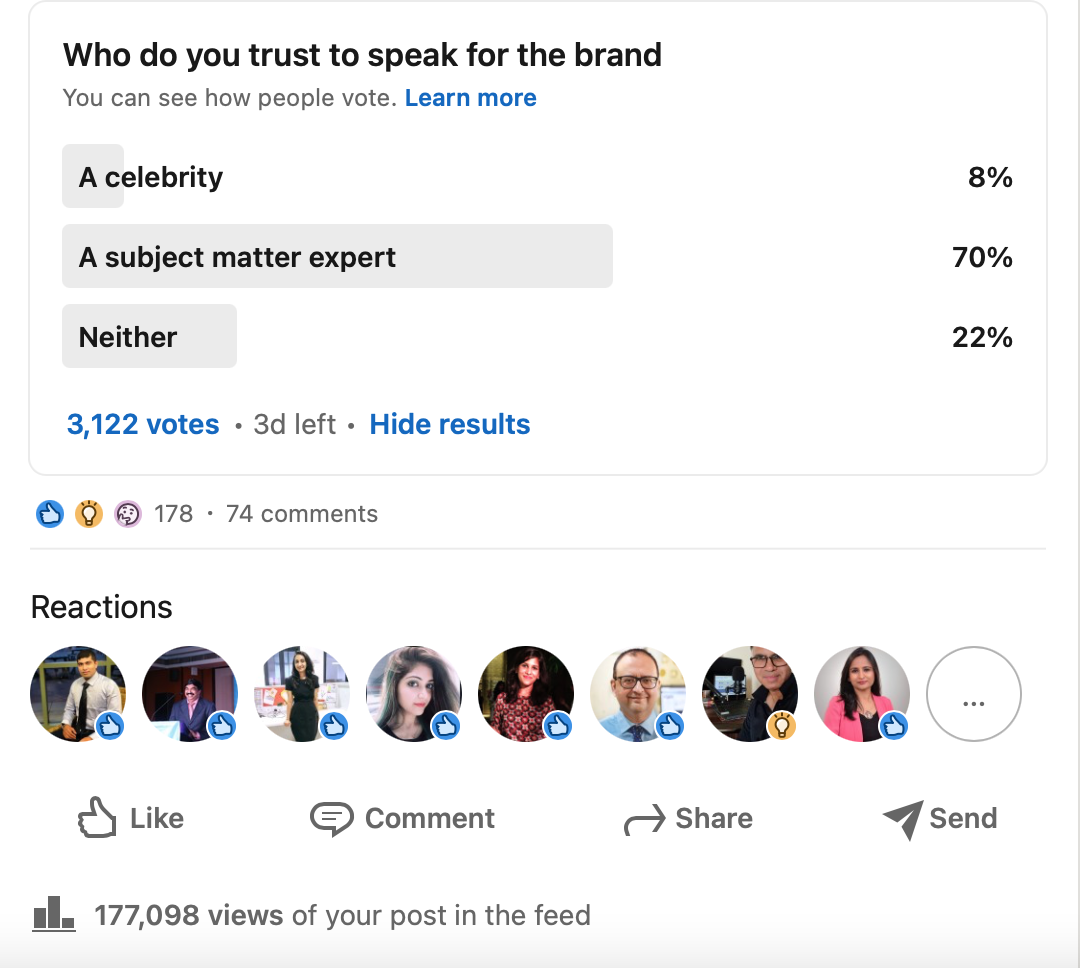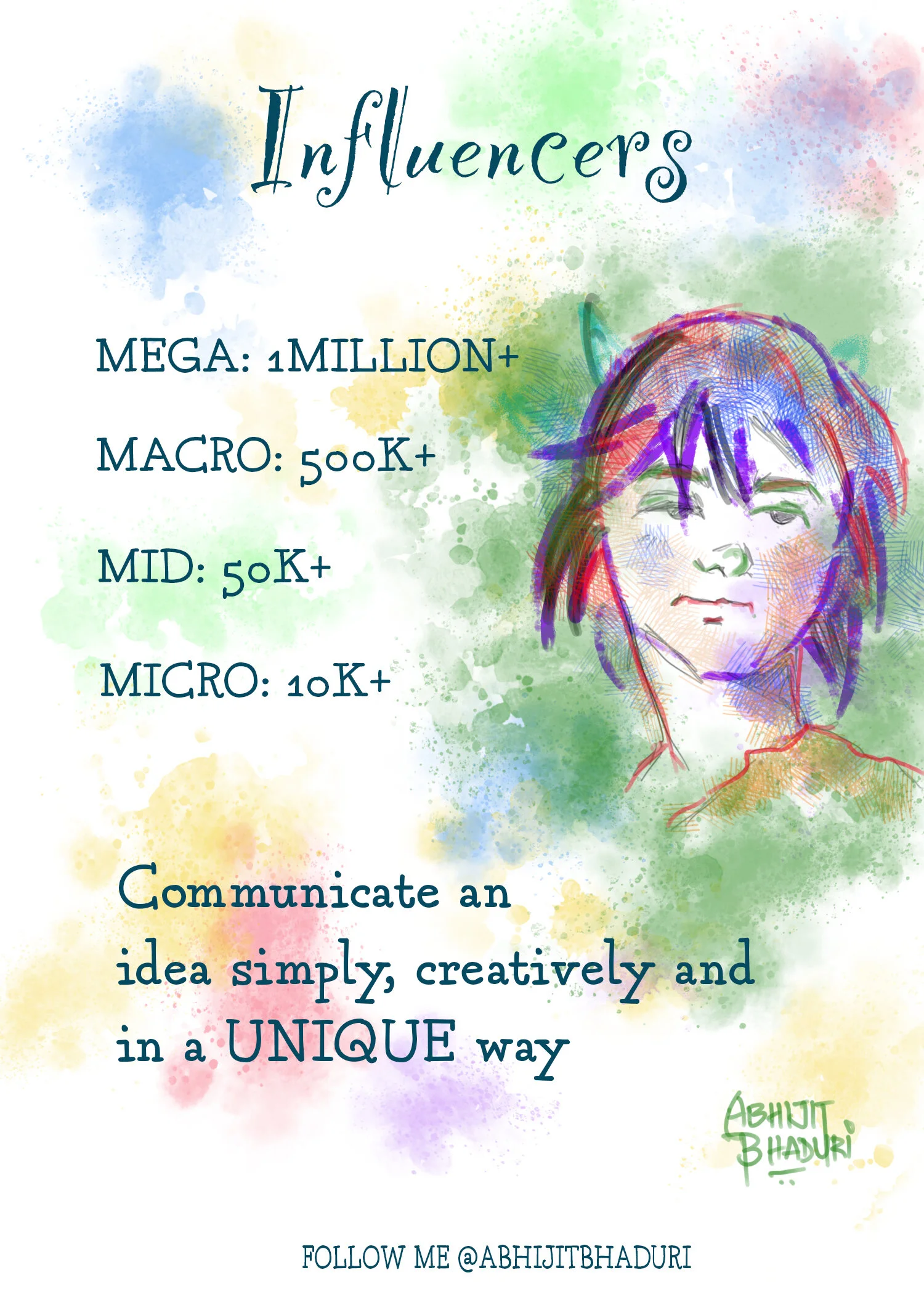Influencers - are they just content creators
They are everywhere. Maybe I should say, they are on every social platform. They are jumping off wheelbarrows, doing cartwheels in front of the camera and speaking in an unrestrained manner to the audience. They are teaching us. They are entertaining us. They are grandmas and they are kids. How many followers do you need to have to be called an influencer. I will answer that at the end. But just to get us started, these kids have 72 million subscribers. Don’t get disheartened. You can be in the game too.
Look at Vlad and Niki having fun and being kids in front of millions- 72.8 million subscribers to be precise.
Talc is cheap, trust isn’t
How many followers do you need to be called an influencer. Before you get locked into comparing follower counts, it is important to know why they matter. The ability to sway, not dictate to others, can make or break a corporate. The influencers can do just that. They sway public opinion.
Haven’t the film stars always done that forever? Yes, they have. The audience also knows that they do not quite use the products or services they hawk. It is fake. Does ANYONE believe that Shah Rukh Khan actually uses Navratna Cool Talc? Talc is cheap. Trust is hard to earn. If you did the same ad for that talc, chances are you would be more believable than Shah Rukh Can! Authenticity is the first criteria for being an influencer. This is where the average person has an advantage.
By jo, we have a problem
When the high profile brand film star enters a controversy, the brands have to abandon the partnership. The learning app Byju’s face this issue. They had Shah Rukh Khan as a brand ambassador. When Shah Rukh’s son Aaryan got involved into an alleged drug case, Byju’s quietly dissociated themselves and stopped airing the ad. Byju’s stopped all ads over the last few days after the company came under fire on social media platforms like Twitter. The brand ambassador’s reputation rubs off on the products they endorse. This is a double-edged sword.
Brand Ambassador or Influencer?
An ambassador will hawk your products if you pay them a fee. Celebrities are people who are brand ambassadors. They are not users of the product. They have a mass appeal and the product’s message reaches the followers of the celeb. A celeb cannot have a conversation with his/her followers. The celeb brand ambassadors are hoping for blind loyalty. You love the celeb so you support the product without any rational reason. The impact is momentary.
An evangelist or influencer is necessarily an expert. People value the subject-matter expertise that the evangelist has. That deep expertise of the domain plus the credibility of knowing and using the product or a service makes the person influential. It changes beliefs because it is a combination of the head and heart. There is a rational basis for the recommendation plus the influencer’s ability to create unique content that creates the right to advocate.
When the brand has a crisis, an influencer can sway public opinion. A brand ambassador is absent from the scene when there is a PR crisis. It needs someone who can speak with credibility and authority. Brands abandon the celeb as soon as there is any negative sentiment about the brand ambassador. The influencers are leveraged during a PR crisis.
“The brand leverages an influencer during a PR crisis because the influencer has the credibility to shape opinions.”
I asked people on LinkedIn who did they trust to speak for the brand. It got more than 177,000 views. More than 3000 people responded. More than 2 out of 3 people trusted the subject matter expert. Less than one in ten people trust celebs. Almost 22% trust neither the celeb nor the influencer!
The number of followers determines the reach of the influencer
“Hire” your influencers
The influencers need to be hired with the same diligence as a regular hire. I would argue that you need to be even more careful about hiring the influencer because the influencer may have more audience to sway than the CEO! They may land up endorsing another product or service that might make you the laughing stock. Check if you would let that influencer be a spokesperson for you. Ask how that would impact your employer brand.
B2B needs influencers too
A recent study found that a staggering 90% of respondents feel that influencer marketing is an effective tool with 80% increasing their content output over the last two years. In fact, the industry has grown from over $1 billion in 2016 to over $13 billion projected for 2021. (Read more)
“The influencers need to be hired with the same diligence as a regular hire.”
Creative communicators
The superpower of the influencer comes from their ability to build a bond with each member of the audience. They do this by being able to simplify a complex message. They get to the essence of the idea. They think hard about the message and find a creative way to narrate the most mundane piece of information. They are storytellers. Each influencer has their signature style of telling stories. It is this combination that builds their influence. That is how communication has changed. The size of the audience tells you how well they have understood it.
Let me know what you think about influencers. Are they necessary or a useless expense?
Read more: Under the influence by Korn Ferry



